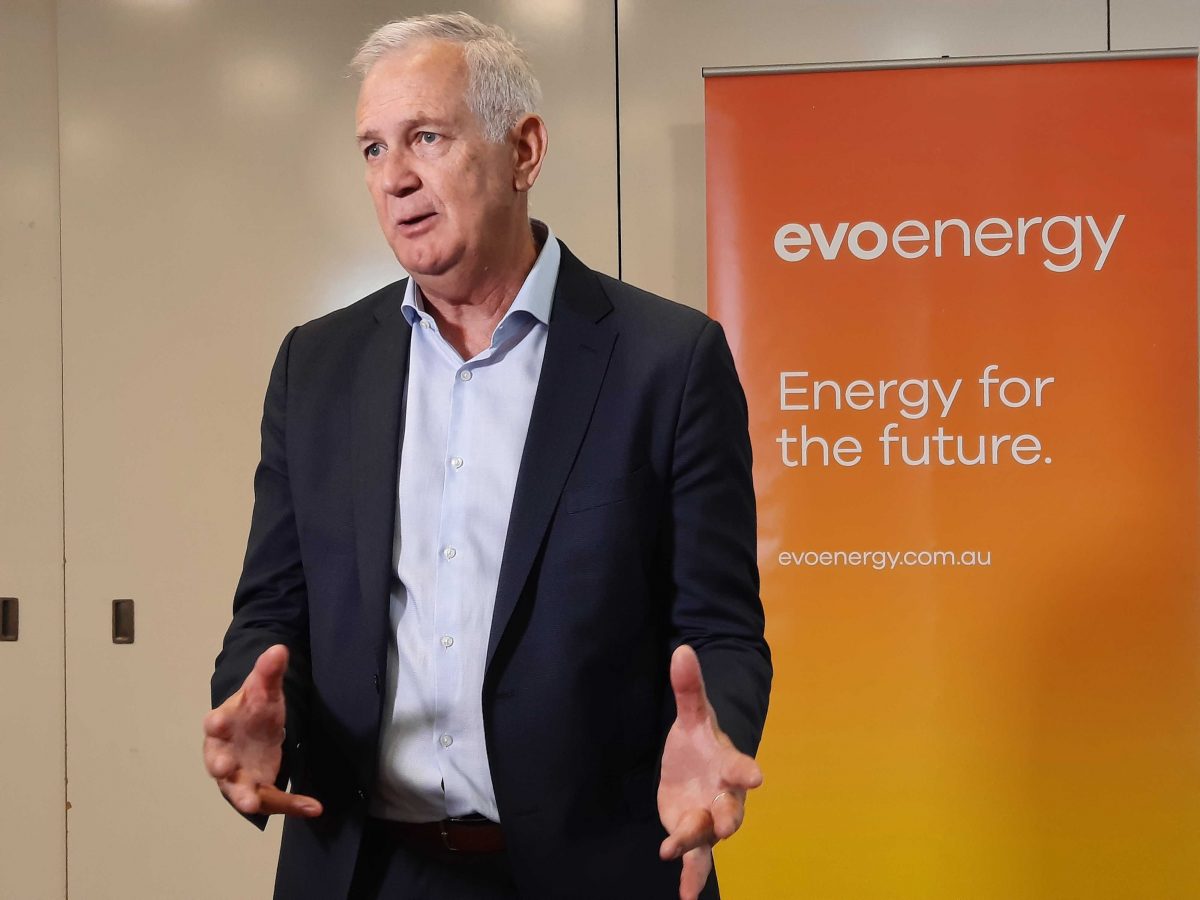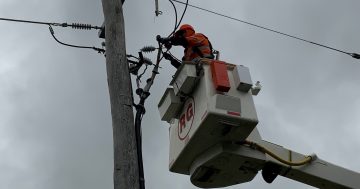
The supercell storm which tore through Canberra in January this year knocked out the power for more than 21,000 households. Photo: Maree Winmill.
The operator of the ACT’s electricity network has been forced to defend how it communicated the extent and severity of power outages caused by a supercell storm which ripped through the Belconnen region in January.
Evoenergy has acknowledged more could be done in the future to communicate in a timely fashion with customers in the aftermath of events like this storm.
The supercell knocked out power for more than 21,000 households, some of which were ultimately left without power for as long as six days in the most severe cases.
More than 18,000 people had their power restored in the first few hours following the storm.
The damage suffered by the ACT’s electricity network was on the same scale as the devastation wreaked by the 2003 bushfires.
Earlier this year, the Territory’s Emergency Services Commissioner Georgeina Whelan accused Evoenergy of having failed to communicate the extent and severity of the blackouts to emergency services.
At the time a spokesperson for the company refuted that allegation, arguing it had provided a full situation report to the relevant agencies.

Evoenergy general manager Peter Billing acknowledged more could always be done to improve the company’s storm response. Photo: Evoenergy.
Now, as part of a government inquiry into the broader storm response, it’s being pressed on whether it communicated enough with residents and affected customers about how long they were likely to be without power.
General manager Peter Billing acknowledged the company could improve on its communications.
“We can always learn from events like these and we know we can always be doing better to serve the community [given] the intensity and frequency of these events is increasing,” he told a recent committee hearing.
He noted that could include “providing more timely, frequent and effective communications to our customers”.
Mr Billing referenced feedback from customers affected by the storm who said they wanted SMS notifications when power interruptions on the network were detected. Those systems are currently being upgraded, he told the hearing.
But the general manager also listed multiple ways in which the company had attempted to communicate with people, including by sending out representatives to the ESA Community Hub in Higgins, responding to almost 5000 calls to the contact centre, using social media channels and engaging with the media.
Those calls represented a 1200 per cent increase on the call centre’s normal weekly volume.
Despite this, many residents wrote to the committee to complain of being both literally and metaphorically left in the dark about when their power would come back on.
One resident described the information they were receiving from the contact centre or on social media from Evoenergy as “inaccurate”. Others echoed the point that it was only by speaking to crews on the ground that they could get accurate information regarding their own situation.
Residents also accused the ACT Government of failing to communicate what was going on.
Evoenergy strategy lead Alison Davis said while there had been a program of work designated which would have been communicated to people who called the contact centre, this would have been adjusted depending on whether other hazards emerged.
“Our crews always prioritise safety [so while] there was a list that was generated and updated on a regular basis … that would move about based on what we found in the field,” she said.
Committee MLAs Johnathan Davis, James Milligan and Michael Pettersson pushed Mr Billing and Ms Davis on why they had not, for example, considered letterbox drops or door-knocking.
Ms Davis said letterbox drops and door-knocking were considered but it was ultimately decided they would not be good options as information was changing too rapidly and they did not have the staff to facilitate either.
“We did have field crews who were talking to residents and some of our office-based staff were also out talking to customers and providing support to our crews,” she said.
Mr Higgins acknowledged communication channels such as social media relied on people having access to their phones, and therefore access to power at some point. But he said radio interviews had also been conducted, which would have at least assisted people who owned a battery-operated radio.
Evoenergy owns and operates the poles and wires which make up the Territory’s electricity network. It also operates the gas network.













